Search Results
Showing results 1 to 20 of 23
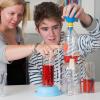
Have a Heart
Source Institutions
Your heart pumps blood throughout your body in one direction, around in a loop. In this activity, learners will make a model of one type of heart chamber called a ventricle.
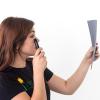
Seeing Your Retina
Source Institutions
In this quick optics activity, learners use a dim point of light (a disassembled Mini MagLite and dowel set-up) to cast a shadow of the blood supply in their retina onto the retina itself.
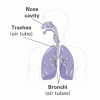
Heart and Lungs
Source Institutions
In this environmental health activity, learners investigate their breathing and pulse rates, and learn how these measurements are affected by physical activity.
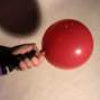
Valves and Pumps: A Demonstration
Source Institutions
This is a demonstration you can use to show learners how valves and pumps work in concert to move blood through the circulatory system.

Make a Heart Valve
Source Institutions
In this activity, learners make a model of a one-way heart valve to investigate how a heart controls the direction of blood flow.
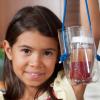
What's in Your Blood?
Source Institutions
Doctors often send a sample of blood to a lab, to make sure their patients are healthy.
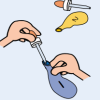
The Nose Knows!
Source Institutions
In this activity on page 9 of the PDF, learners test how flavoring extracts move through the walls of a balloon.

How Long Can You Hold Your Breath?
Source Institutions
In this activity (on page 142 of the PDF), learners will compare breathing rates before and after hyperventilation to explore how reduced carbon dioxide levels in the blood lower the need to breathe.
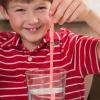
Clogged Arteries
Source Institutions
In this activity, learners explore how eating unhealthy food can damage a heart and arteries.

Raising the Level of Carbon Dioxide in Your Blood
Source Institutions
In this activity (on page 146 of the PDF), learners will explore the effects of increased carbon dioxide in the bloodstream.

Measuring Blood Pressure in Space
Source Institutions
In this activity (page 105 of the PDF), learners measure heart rate and blood pressure and learn how to obtain consistent measurements during repeated tests.
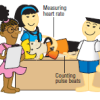
Changing Body Positions: How Does the Circulatory System Adjust?
Source Institutions
In this activity about how the body regulates blood pressure (page 117 of the PDF), learners make and compare measurements of heart rate and blood pressure from three body positions: sitting, standing
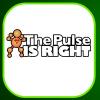
The Pulse is Right
Source Institutions
In this online activity, learners measure their pulse rates and investigate how their pulses change when they engage in different activities.
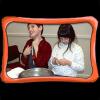
Slowing the Flow
Source Institutions
In this experiment, pairs of learners explore how cold water affects circulation. The mammalian diving reflex (MDR) slows circulation when the body is exposed to cold water.
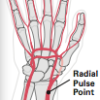
Heart Rate and Exercise
Source Institutions
In this activity about heart health (on page 27 of the PDF), learners measure their heart rates after a variety of physical activities and compare the results with their resting heart rates, and with
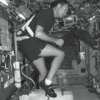
Challenge: Microgravity
Source Institutions
In this activity about the circulatory system and space travel (on page 38 of the PDF), learners use water balloons to simulate the effects of gravity and microgravity on fluid distribution in the bod
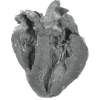
Examining the Heart
Source Institutions
In this activity about the heart (on page 22 of the PDF), learners examine sheep or chicken hearts to learn about the heart's structure and the flow of blood through the heart.
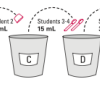
A System of Transport
Source Institutions
In this activity about the human heart (on page 5 of the PDF), learners work in teams to simulate the volume of blood moved through the circulatory system by transferring liquid into--and through--a s
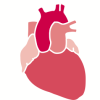
What is Blood Pressure?
Source Institutions
In this activity about heart health (on page 34 of the PDF), learners measure their own blood pressure using an electronic blood pressure monitor with a self-inflating cuff (included in cost of materi
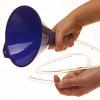
Listen to THIS!
Source Institutions
In this activity, learners use plastic tubing and a funnel to listen to their heart. Learners also discover that if they run around, their heart pumps harder and faster, making it easier to hear.
